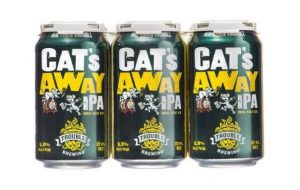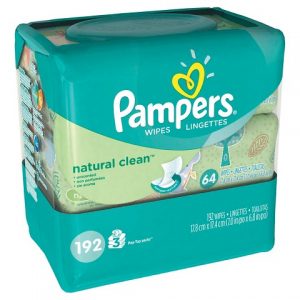 Top Class Action Lawsuits
Top Class Action Lawsuits
Here’s a little known data breach that’s making class action news. The Sonic Drive-in chain of restaurants is facing allegations that it was negligent in protecting its customer credit and debit card data, resulting in hackers accessing the data, which is now being sold the black market. What data breach, you ask?
On September 26, 2017, Sonic announced that its payment system had been breached and that personal identifying information for up to five million credit card and debit card owners had been stolen. The complaint alleges that the stolen data is sufficient to enable fraudulent charges to made to accounts of those five million credit and debit card holders.
Sonic has nearly 3,600 locations across 45 states. In its September statement, the restaurant chain noted that the stolen credit and debit card numbers may have been acquired without as part of a malware attack experienced at “certain Sonic Drive-In locations.” The company said it was working on an investigation in conjunction with third-party forensics firms, in addition to cooperating with law enforcement investigations.
Filed by Chicago resident Clara Hughes-Hillman, the lawsuit claims Sonic Corp, should have known to enable adequate protection of its consumer data particularly in light of recent, well publicized data breaches at other large chain restaurants and companies.
Notably, while Sonic has admitted to a data breach in September, the plaintiff alleges that she last frequented a Sonic restaurant in August and September of 2016, a full year prior to Sonic publicly admitting to the breach.
According to the proposed Sonic class action, the affected consumers are now vulnerable to unauthorized charges and theft of personal financial information, and must bear the costs of preventing and detecting identity theft, and may even lose financial standing as a result of the loss of access to funds, the possible inability to make payments on bills ad loans, and other adverse effects to their credit.
“Had Sonic implemented and maintained adequate safeguards to protect Customer Data, deter the hackers, and detect the beach within a reasonable amount of time, it is more likely than not that it would have been able to prevent the Data Breach,” the complaint states. “As a result of the Data Breach, the Customer Data of Plaintiff and the Class members have been exposed to criminals and is ripe for misuse.”
Hughes-Hillman seeks certification of a nationwide class of consumers whose personal financial information had been made vulnerable by Sonic to hackers who have put credit card numbers up for sale on the dark web. The complaint asks the court for damages, restitution and disgorgement from Sonic.
Hughes-Hillman and the putative class are represented by Kasif Khowaja and Frank Castiglione of The Khowaja Law Firm LLC, Brian Murray and Bryan Faubus of Glancy Prongay & Murray LLP, Paul Whalen of the Law Office of Paul C. Whalen PC, Jasper D. Ward IV of Jones Ward PLC, John Yanchunis of Morgan & Morgan Complex Litigation Group and Jean Martin of the Law Office of Jean Sutton Martin PLLC.
The case is Hughes-Hillman v. Sonic Corp., case number 1:17-cv-09062 in the U.S. District Court for the Northern District of Illinois.
Not so sunny days ahead for Bayer and Merck? —the owners of Coppertone, who find themselves on the end of a consumer fraud class action lawsuit. Filed against Bayer Healthcare LLC and Merck & Co. Inc. the Coppertone lawsuit alleges the advertising for their Coppertone Sport High Performance SPF 30 sunscreen is willfully false and misleading because the product does not provide greater protection against the sun as advertised, resulting in consumers paying for the product under false pretenses. And apparently, they’re not following their own scripts… read on.
Filed by consumer Andrew Roseman, the complaint states that Merck and Bayer acquired the Coppertone product line in 2014, and that they tested the products and found that their actual SPF is “substantially lower” than SPF 30. Therefore, they have mislabeled the spray and lotion versions of the sunscreen at SPF 30.
“Plaintiff and putative class members have been, and continue to be, injured by defendants’ pattern and practice of placing into the stream of commerce sunscreen products containing a false SPF number, and largely inflated UV protection numbers, which defendants manufactured, distributed, and sold,” the complaint states.
The spray and lotion versions of Coppertone Sport High Performance SPF 30 sunscreen each indicates on the front of the label that the product provides an SPF of 30, the lawsuit says.
The complaint cites the Coppertone website, which encourages consumers to buy a broad spectrum sunscreen with an SPF of at least 30 for protection from roughly 97 percent of the sun’s harmful rays.
However, the complaint notes that results from testing done by Consumer Reports indicate that the spray version’s actual SPF is less than half of that advertised.
Further, Roseman conducted his own testing which similarly found that the average SPF for Coppertone product’s was 13.9 as opposed to the SPF 30 as advertised. According to the complaint, Roseman’s test results show that the lotion’s SPF was 14.8.
Conversely, the label on Coppertone Sport High Performance SPF 30 product cautions against using products with an SPF of less than 15, according to the complaint.
“With a true SPF of only 13.9 and 14.8, the sunscreens do not even meet the minimum SPF value of 15 prescribed by their own labels, thereby subjecting users, according to those labels, to an ‘increase[d] … risk of skin cancer and early skin aging,’ not to mention sunburns,” the lawsuit says.
Roseman alleges Bayer and Merck conducted their own tests of the sunscreen prior to selling the Coppertone products, and therefore were aware that their labels were false. Roseman asserts that had he known the true SPF of the products, he would not have purchased them or would have paid less for them.
Roseman seeks to represent a class of New Jersey residents who have purchased Coppertone Sport High Performance SPF 30 sunscreen spray or lotion within the state since November 2, 2011.
The case is Roseman v. Bayer Healthcare LLC et al., case number 1:17-cv-13308, in the U.S. District Court for the District of New Jersey.
Top Settlements
Santa’s bringing checks! Yup – Wells Fargo is going to pony up $13 million in settlement of an unpaid wages class action lawsuit, which will affect some 44,000 employees in California. The lawsuit alleged the bank failed to pay for hours worked off-the-clock, including both overtime and straight-time pay, and failed to provide meal and rest breaks. If granted final approval, the settlement would end six and a half years of litigation.
The Wells Fargo settlement, reached in mediation, is non-reversionary, resolving California labor law and federal wage-and-hour claims. Plaintiffs state in their motion for approval that “If plaintiffs and the class prevailed on some or all of their class claims at trial, they would almost certainly face an additional appeal by Wells Fargo.” Further, plaintiffs would like not receive any relief until 2021, if they elected to pursue their case through the courts.
The average settlement payout is $174 per class member. Recipients include tellers who’ve worked for the bank from August 20, 2008, and certain service managers who worked for the bank from April 7, 2011. Additionally the seven named plaintiffs will receive $10,000 each under the agreement.
The case is Wells Fargo Bank Wage and Hour Cases, case number JCCP4702 in the Superior Court of the State of California, County of Los Angeles.
Ok Folks – That’s a wrap for this week. Time for Santa – Happy Holidays!!!

 Top Class Action Lawsuits
Top Class Action Lawsuits  Top Class Action Lawsuits
Top Class Action Lawsuits  Top Class Action Lawsuits
Top Class Action Lawsuits  Top Class Action Lawsuits
Top Class Action Lawsuits Top Class Action Lawsuits
Top Class Action Lawsuits  Top Class Action Lawsuits
Top Class Action Lawsuits Top Class Action Lawsuits
Top Class Action Lawsuits